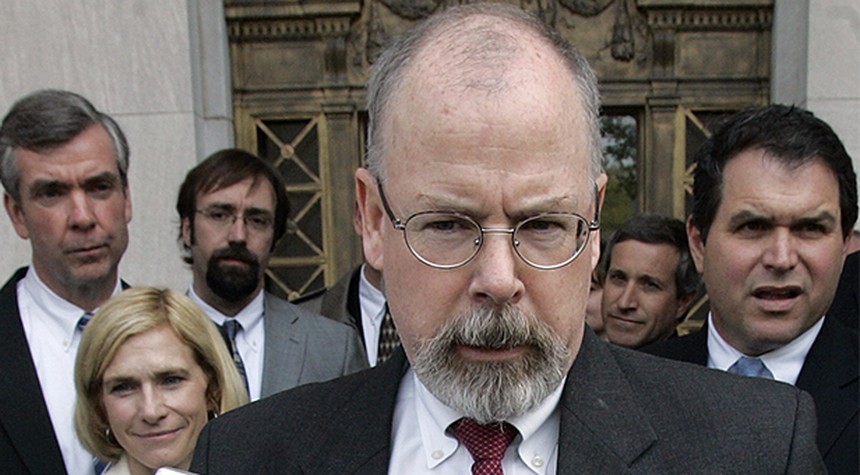As RedState reported, lawyers for Michael Sussmann, who has been indicted under John Durham’s investigation for lying to the FBI, have entered a motion to dismiss the charge against their client. That led to a rash of hot takes insisting that this proves Durham doesn’t have the goods, but a closer look at the request shows it be much more of a desperate heave into the end zone than a play expected to succeed.
To start, let’s note that defense lawyers would not be doing their jobs properly if they didn’t try to get the prosecution dismissed. The existence of this motion to dismiss does not in any way serve as evidence that Durham’s charge against Sussmann is specious. In fact, a closer look at the filing shows it to be incredibly weak. Let’s take a look at the key parts of this.
Sussmann’s argument boils down to the idea that his lying to the FBI was ancillary to any decision to open an investigation into the false Alfa Bank allegation involving Donald Trump and Russia. Therefore, according to the motion, the prosecution should be dismissed because the lie doesn’t meet the bar of being material.
The problem with that is that Sussmann was trading on his reputation and name to even get a meeting with James Baker. If his now-debunked Alfa Bank information spoke for itself, regardless of Sussmann’s political connections, he could have just emailed it over. Instead, as a representative of the Clinton campaign, he put pressure on the FBI to open an investigation into the matter, choosing to lie about who he was working for in order to make himself and his information seem more credible.
But while nothing is a given in the judicial system, the prosecution will certainly have a strong case that Sussmann’s lie was, in fact, material to the FBI’s decision-making process. Remember, we aren’t proving guilt or innocence at this point, only whether the threshold is met to continue the prosecution.
As a point of comparison, there’s also the fact that such motions failed during the prosecutions brought in Robert Mueller’s investigation. Michael Flynn’s supposed falsehood to the FBI did not appear to be material regarding much of anything, yet the judge did not dismiss his case. The same is true of George Papadopoulos, who simply mixed up a date when speaking to the FBI. In both cases, the FBI did not base its choice to continue or end its investigation based on what they were told.
If those interactions met the bar of being material, there’s little argument Sussmann’s interaction doesn’t. In fact, James Baker testified to the House Select Committee in 2017 that Sussmann’s behavior was unique and unusual. Why engage in unique and unusual behavior, if it was otherwise irrelevant and immaterial?
Further, when looking at the claim in the motion that Durham’s indictment doesn’t allege Sussmann’s lie was material to the FBI’s investigation, that is not dispositive that it wasn’t. Sussmann’s lawyers appear to be arguing that the investigation would have happened anyway because Rodney Joffe (who was caught up in the latest Durham bombshell about Hillary’s spying on Donald Trump) had the information and had a close relationship with the FBI.
Yet, as Sean Davis notes, if that were true, then why did Sussmann go to the FBI at all? Why not let Joffe do all the heavy lifting? Again, the answer appears to be that Sussmann was counting on his influence in order to get the FBI to investigate, which would make his false statements material. The entire scam was to get the information flowing into the FBI from different, seemingly unconnected sources in order to make it appear legitimate and worthy of investigation. In reality, the sources were all working together, peddling a false narrative for political reasons.
Lastly, there is little doubt that Durham was expecting these arguments to be made. Until he has a chance to respond, this story is incomplete; so be very wary of left-leaning “legal analysts” rushing to proclaim this motion to dismiss damning. It’s not, and it does not have a good chance of succeeding.

